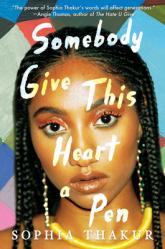This guide centers on sex and relationships, and how to navigate understanding and communicating consent. The author, Donna Freitas, establishes a comfortable tone from the very introduction of the book, and maintains it throughout the chapters. This is necessary for her intended younger teen audience, for whom questions regarding sexual relations is still tabboo or difficult to comprehend. The guide provides a nuanced take on how to healthily pursue relationships, but does so in a simple enough way for someone new to the topic. Freitas really starts from the very basics, starting with topics of how to assess your own individual wants and needs, to create a basis for establishing personal boundaries. Freitas even elaborates on various gender and sexual identies, to be inclusive of her LGBTQ+ readers, as well as highlight how unique everyone’s sex/relationship life can be. Alongside all this, the guide takes a modern take, and explains how sexuality interconnects with social media, and how to indulge in online expression in a cautious and critical way. It establishes a basic moral code, what Freitas refers to as “sexual ethic”, for people to apply to how others should be treating them, as well as how they should be treating others. It should be noted that the book does tackle heavy subjects such as rape, assault, and online or social harassment. Corresponding content warnings are provided within the book itself, and the headings make it obvious what each section is going to explore. She takes the concepts she explains seriously but is light-hearted and somewhat humorous throughout, which keeps the writing from coming off as patronizing.

The big questions book of sex and consent
Audience:
Subject:
About This Book
Encourages readers to think about friendship, trust, and personal sexual parameters so that it can be determined if, when, and what is wanted in intimate situations.







